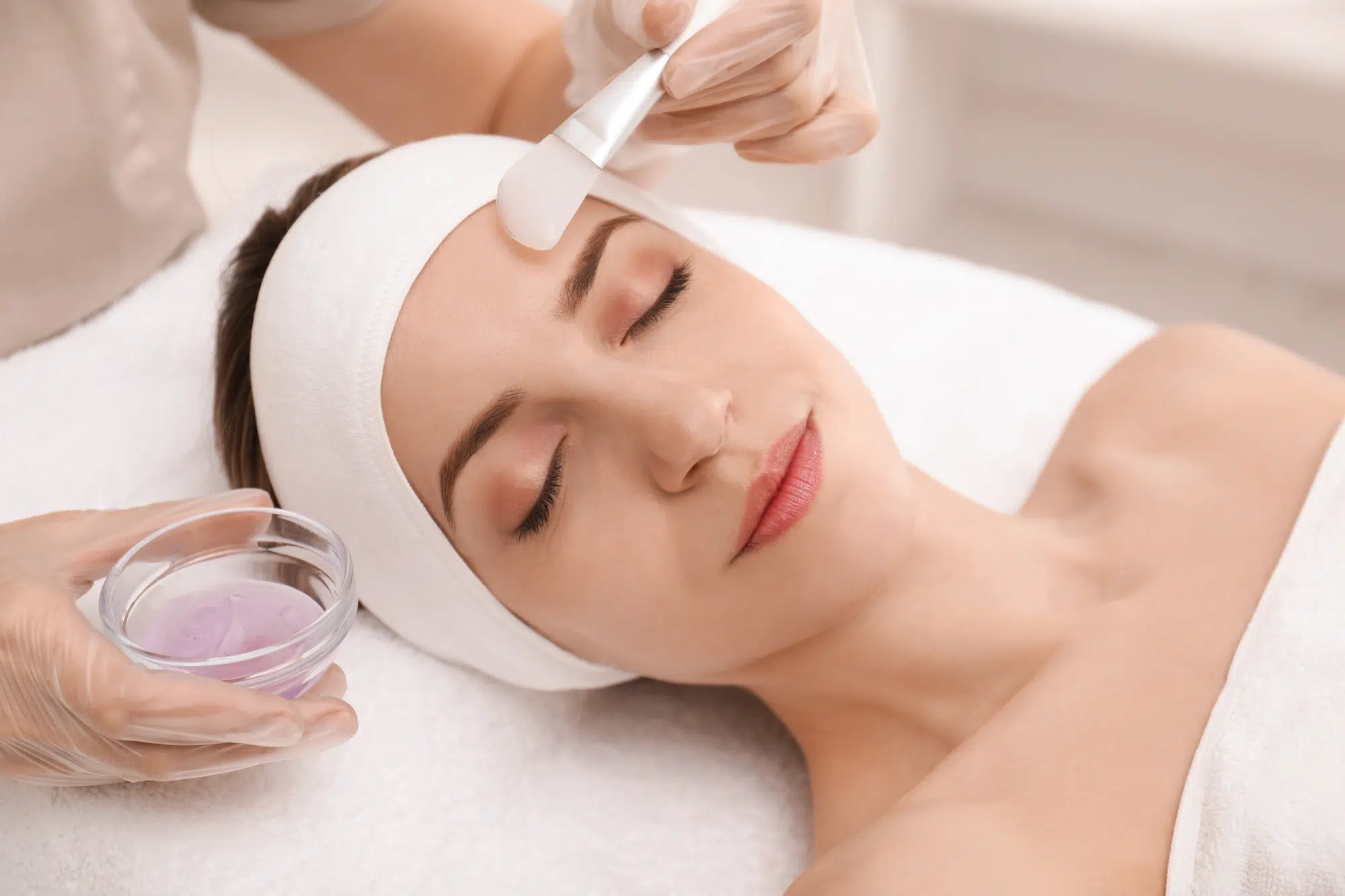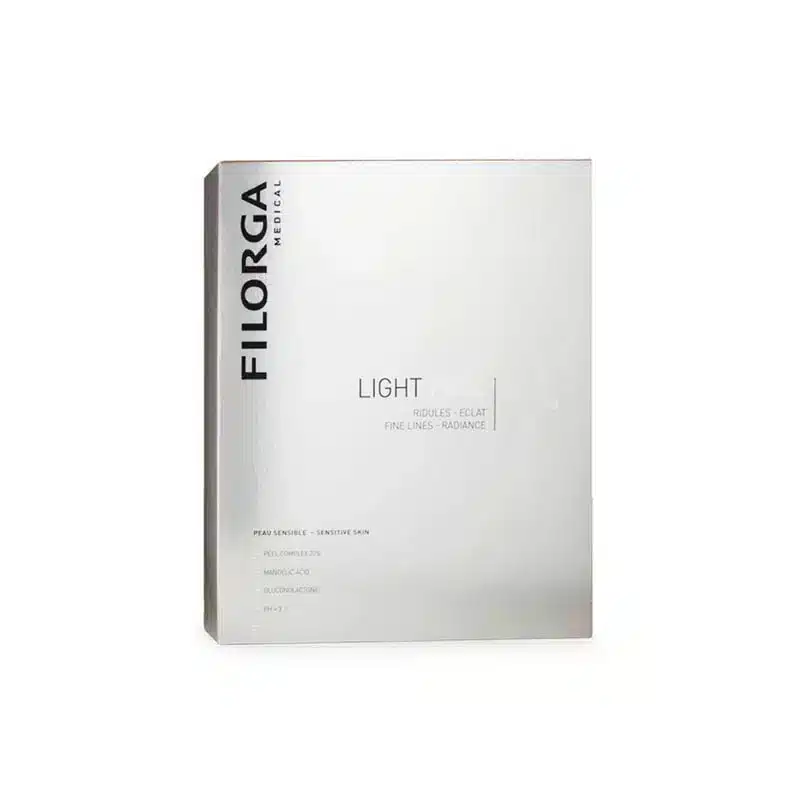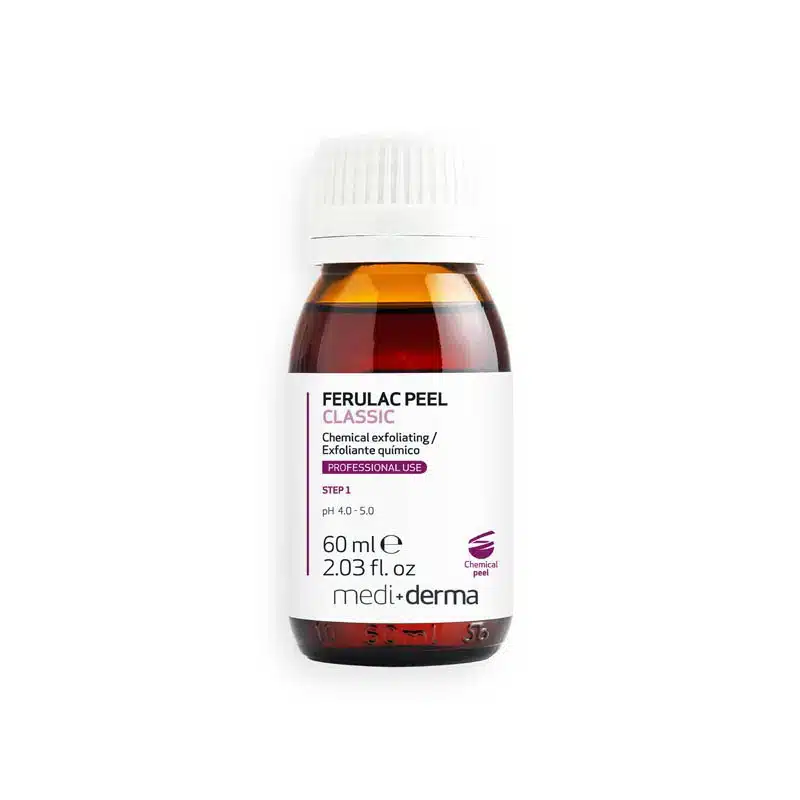There is a misconception about using sensitive skin chemical peels, as they are said to be already harsh on any skin type, even that of the best condition.
With the ability to improve skin quality, its texture and tone, and treat wrinkles, scars, and discoloration, chemical peels have been a powerful health and beauty tool, helping clients regain self-confidence and strengthen the fight against signs of aging. Yet due to the nature of a chemical peel procedure, where a chemical solution removes top skin layers causing controllable damage, there are bound to be skin reactions during and post-treatment, which need a recovery period to show their full results.
With the fact that a growing number of the worldwide population is facing sensitive skin challenges as a result of numerous factors, from genetics to urban pollution, it is wise to understand the elements of an adequate delicate skincare routine that can help even those with the most sensitive skin.
Medica Depot helps you explore sensitive skin care, focusing on mild options for sensitive skin chemical peels, tailor-made for those whose skin requires a gentle approach.
Key Takeaways
- Sensitive skin is becoming more common in the current times due to numerous factors based on modern lifestyle, genetics, and the environment we live in.
- Aesthetic professionals should approach sensitive skin treatments with extra caution and good knowledge of recommending products created for this skin type.
- Chemical peels for sensitive skin are an option, but choose those with gentle ingredients, and opt for products tailor-made for delicate skin types.
- If you conclude that your patient’s skin is too sensitive to undergo a chemical peel, decide on another, more gentle treatment that will give rejuvenating and hydrating effects, like skin boosters, aqua peels, cryotherapy, and others.
Recognizing Sensitive Skin
When talking about delicate skin types, it is not the question of whether chemical peels are safe for sensitive skin but how to approach skincare for even the most delicate skin.
The first step would be to recognize sensitive skin in clients, as it can be misleading.
Sensitive skin shows up as:
- Skin prone to redness and rash
- Skin that feels tight, uncomfortable, itchy, or burning
- Swollen skin or patches of skin
It is not rare for sensitive skin to be dry, showing patches that feel hard, may crack, blister, or even bleed.
Sensitive skin causes vary from one person to the next. From genetics, use of medication to contact with irritants (like beauty products), allergies, or eczema, delicate skin may be triggered by lifestyle or environmental factors – or can be a permanent state of one’s skin type. Clients with sensitive skin will most likely be the ones who avoid coming in contact with chemicals, be it in perfume or even laundry detergents, and will need to regularly moisturize their skin to prevent it from drying.
So, before you decide on sensitive skin chemical peels or any skin treatment for your client, ensure you understand their skin type to offer them an experience that will show good, refreshing results.
Chemical Peels for Sensitive Skin
Chemical peels fall under three categories: light, medium, and deep.
Light chemical peels remove the outer layer of the skin called the epidermis. Medium peels go deeper into the dermis, while deep chemical peels are used to remove deeper cells. The first two can be repeated to reach the most desired effects.
Light chemical peels, using gentle enzymes and acids, are the best option for sensitive skin, as they offer gentle exfoliation and hydration. And the best chemical peel for sensitive skin is the one that is tailor-made just for it.
Do’s and Don’t of Chemical Peel Treatment on Sensitive Skin
As an aesthetic professional, there are some do’s and don’ts of chemical peels on sensitive skin that both you and your client should be made aware of before the procedure.
Do:
- Review your client’s medical history, be aware of any medication that your client might be using, and evaluate the sensitivity of their skin. If your client has had a bad experience from previous treatments, it might be best to advise against a chemical peel.
- Address the expectations. With sensitive skin, it is often difficult to expect drastic results, and depending on your patient’s reaction to the treatment, they might need to come in for a few procedures to reach the desired effect.
- Prepare your client for the aftercare of a medical peel, including: avoiding sunlight, avoiding make-up, sleeping on their back, using creams to soothe the skin post-treatment, etc. Chemical peels come with contraindications and need a healing period no matter the skin type, which might be harder on people with sensitive skin.
Don’t:
- Don’t instruct your client to exfoliate or use an in-depth exfoliation or other harsh cosmetics at least one week before the chemical peel treatment.
- Don’t let your client’s expectations change your advice on which type of chemical peel to offer them. Trust your experience and help them understand that it is wiser to treat their skin gently, even if it means repeated treatments.
In short, make sure you and your client are in line with choosing a treatment option that is the best choice for them.
Sensitive Skin Treatments
When looking into light chemical peels for sensitive skin, explore brands and products that create tailor-made formulas for this purpose.
These include the Ferulac range with ferulic acid characterized by its antioxidant properties, and FILORGA® LIGHT PEEL, a chemical peel that contains gluconolactone, mandelic acid, tromethamine, and pentylene glycol, used to help reduce the appearance of fine lines.
If you discover that your client’s skin is too sensitive to risk a chemical pee, you can opt for other refreshing treatments that will help hydrate the skin, like skinboosters, cryotherapy, aqua peels, and other, non-invasive treatments.
Conclusion
Chemical peels for sensitive skin are an option for a rejuvenating treatment, as long as you know how to approach the issue of maintaining delicate skin care.
By knowing your patient’s skin type, their needs, and expectations, and by turning to tailor-made products used on gentle skin, you can achieve good effects your client will be happy with.
Book a meeting with our sales team at Medica Depot for more information on products best for sensitive skin treatments.
FAQ
Is a chemical peel good for sensitive skin?
Mild chemical peels are good for sensitive skin, but may cause more redness and irritation than they would for people with other skin types.
What is the most gentle chemical peel?
Chemical peels made from light enzymes (like ones derived from papaya) and Alpha Hydroxy acids (like lactic acid), prove to be the most gentle on the skin.
How long is skin sensitive after a chemical peel?
Skin sensitivity after a chemical peel depends on the strength of the procedure. Still, generally speaking, a client may expect their skin to take a few days to a couple of weeks to heal, while redness may remain visible for a few months post-treatment.
References
- A Guide To Sensitive Skin. Galdermahcp.com. Published 2017. Accessed August 9, 2024. https://www.galdermahcp.com/conditions/sensitive-skin
- Chemical peel – Mayo Clinic. www.mayoclinic.org. https://www.mayoclinic.org/tests-procedures/chemical-peel/about/pac-20393473#:~:text=Treated%20areas%20take%20about%20seven
- Preparing For a Chemical Peel – Facial Rejuvenation Edmonton. gloskinmedspa.com. https://gloskinmedspa.com/pages/how-to-prepare-your-skin-for-a-chemical-peel#:~:text=Since%20a%20chemical%20peel%20is
- Chen X, Wen J, Wu W, Peng Q, Cui X, He L. A review of factors influencing sensitive skin: an emphasis on built environment characteristics. Frontiers in public health. 2023;11. doi:https://doi.org/10.3389/fpubh.2023.1269314
- Samargandy S, Raggio BS. Skin Resurfacing Chemical Peels. PubMed. Published 2020. https://www.ncbi.nlm.nih.gov/books/NBK547752/
- What Are The Different Types of Chemical Peel – Dr. Michele Green M.D. Dr. Michele Green M.D. Published June 29, 2023. Accessed August 9, 2024. https://www.michelegreenmd.com/types-of-chemical-peels#:~:text=Alpha%20Hydroxy%20acid%20peels%20are
- Facial Treatments for Sensitive Skin | Trambellir. Trambellir. Published 2022. Accessed August 10, 2024. https://trambellir.com/articles/facial-treatments-for-sensitive-skin











